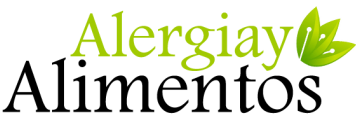TOP HARD AND SOFT SKILLS A DENTAL HYGIENIST SHOULD HAVE

To establish your name as a dental hygienist it is crucial that you have a certain set of hard and soft skills. These hard and soft skills should be taught to you during your two years in Dental Hygienist School. Here are a set of must-have hard and soft skills that would set you apart as a professional.
HARD SKILLS
- Job Skills: Specific skills like initial dental assessment, reporting the findings, taking x-rays, removing plaque, stains and tartar, educating patients on good oral health techniques, are needed to carry out the job.
- Visual Requirements: Your hand-eye coordination should be good for fine motor control. Along with that, you should be able to see the patient’s teeth clearly at least from a distance of 20 inches. Your eyes should be capable of differentiating between the colours of the spectrum so that you can identify the changes in the conditions of the tissues.
- Motor Skills: Fine and gross motor skills are essential for the job. The adequate sensory perception from your hands would allow for easy detection and removal of tooth deposits. The tactile ability allows for the use of small instruments with sufficient control. Full manual dexterity always comes in handy.
- Physical strength and Endurance: You should have enough stamina to be able to move around. Having physical strength can help you to assist patients to transfer themselves to and from the dental chairs. As the profession of dental hygienist involves performing tasks for several hours, while standing, sitting or moving, endurance comes in handy.
- Auditory Requirement: Percussion and auscultation skills are crucial along with correctable hearing in at least one ear.
SOFT SKILLS
- Communication Skills: The ability to be able to effectively interact in either English or French is a crucial part of the job. You should be able to accurately transfer the data that you have gathered into the patient’s record to read and understand the professional and technical material. Along with the ability to demonstrate respect, sensitivity and confidentiality when interacting with the patients, faculty, staff and peers come in handy.
- Conceptual, Intellectual and Cognitive Skills: To succeed you should be able to differentiate between what is normal and what is abnormal. Sufficient problem comprehension, analysis, evaluation and solving skills are crucial for the job. You should be able to work independently, think critically and comprehend three-dimensional relationships.
- Professional Demeanor and Attitude: Professional appearance along with physical, emotional and mental health, flexibility and adaptability will help your dental clinic thrive. Your patients should be able to perceive you as honest, ethical and accountable.
- Comprehension Skills: Comprehension skills would help you to translate the learnings of your CDAC accredited dental hygiene program into practicality.
- Time Management: As schedules tend to be tight, you need to learn to prioritize, plan ahead and also be flexible in terms of working hours.

